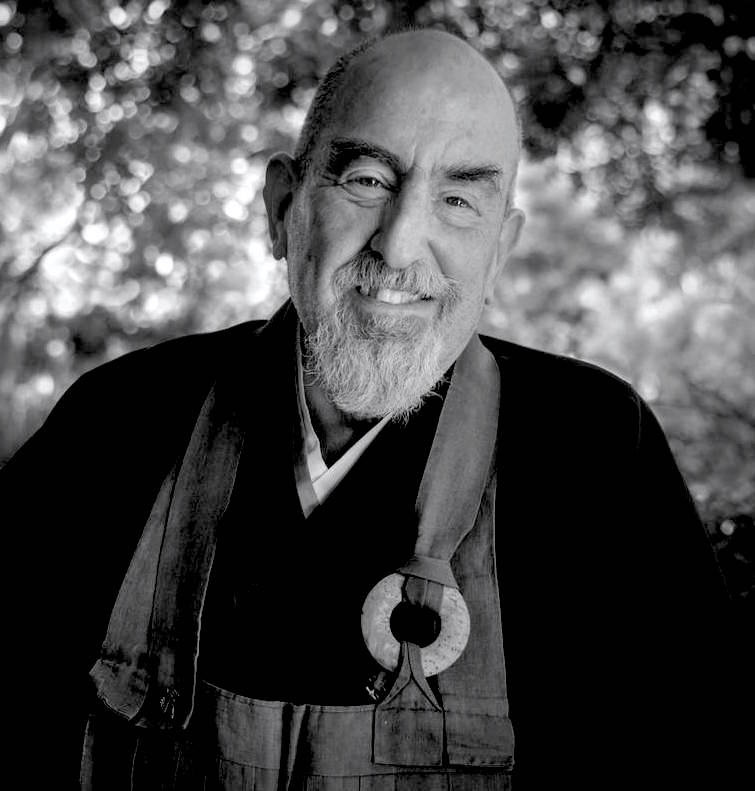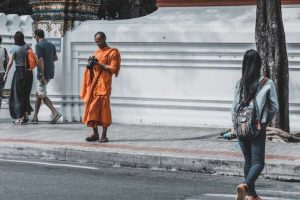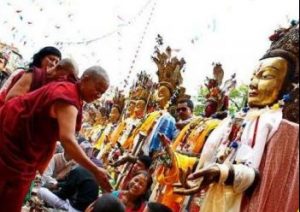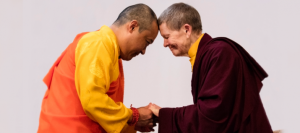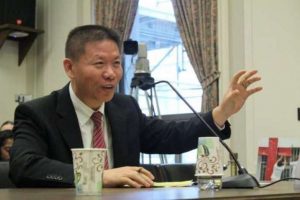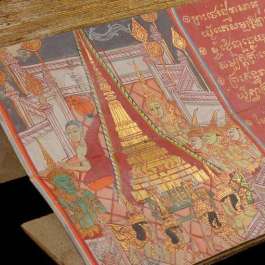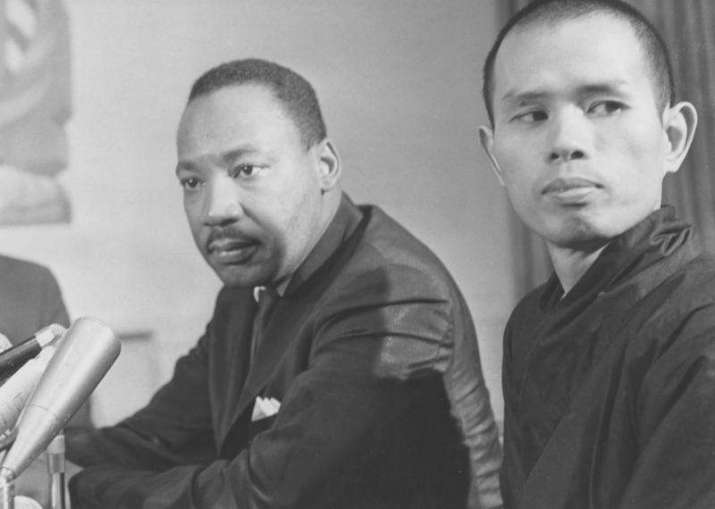
If we want a beloved community, we must stand for justice, have recognition for difference without attaching difference to privilege. — bell hooks
The recent national election in the United States has given many of us cause for celebration, even as dark waters of greed, hate, and delusion still flow freely across the land. With this election—divided as it is—I hope we can once again see the bright vision of Dr. Martin Luther King Jr. when he spoke of the Beloved Community:
. . . the end is reconciliation; the end is redemption; the end is the creation of the Beloved Community. It is this type of spirit and this type of love that can transform opposers into friends.
The Buddha said: “I teach about suffering and the end of suffering.” For me, the end of suffering is the Beloved Community. An engaged Buddhist perspective proposes that the suffering we experience individually is often rooted in systems of suffering: political, economic, and social. Structural duhkha. What is the path to the end of suffering? In short, if spiritual liberation is obscured by the samsaric fog of violence, deprivation, and anxiety, we need to address these structures and systems of suffering. That is what an election is about.
On 3 November, more than 150 million US citizens of all races and backgrounds cast votes for a presidential candidate, as well as for state and local representatives. We celebrate the (relatively) peaceful enactment of democracy, which has been continuous over 230 years of US history. But in the face of ongoing systemic violence, the social enactment of the Three Poisons, we have had to ask ourselves: what is enlightened activity?
For the last three months, some bodhisattvas in Berkeley and around the United States have been focused on the election. A small group of friends—the Buddhist Election Retreat Organizing Committee (BEROC)—all of us with long years of Buddhist practice, created a “virtual” retreat format to “get out the vote.” Since 2004, we have organized face-to-face meditation-based retreats in congressional swing districts for two weeks before national elections. Each day, after meditation and study, we walked the electoral precincts, door to door, for hours until dark. We did this in close collaboration with progressive political campaigns. They have always welcomed our participation and let us know that our get-out-the-vote work made a difference in a number of very close races. At times the candidates came to join our meditation. See Where we’ve been (Engaged Buddhist Election Retreats). In this pandemic year, we have pivoted to online retreats. Here is what we have done:
- 600 people from 29 states participated in 12 letter-writing retreats.
- We sent 25,000 letters to five swing states (AZ, FL, MI, PA, and WI).
- We logged 40 hours of phone-banking and made more than 1,000 calls in key Senate races.
- Speakers included Roshi Joan Halifax, Hozan Alan Senauke, Susan Moon, Bruce Fortin, Andrea Thach, Taigen Leighton, and Reirin Gumbel.
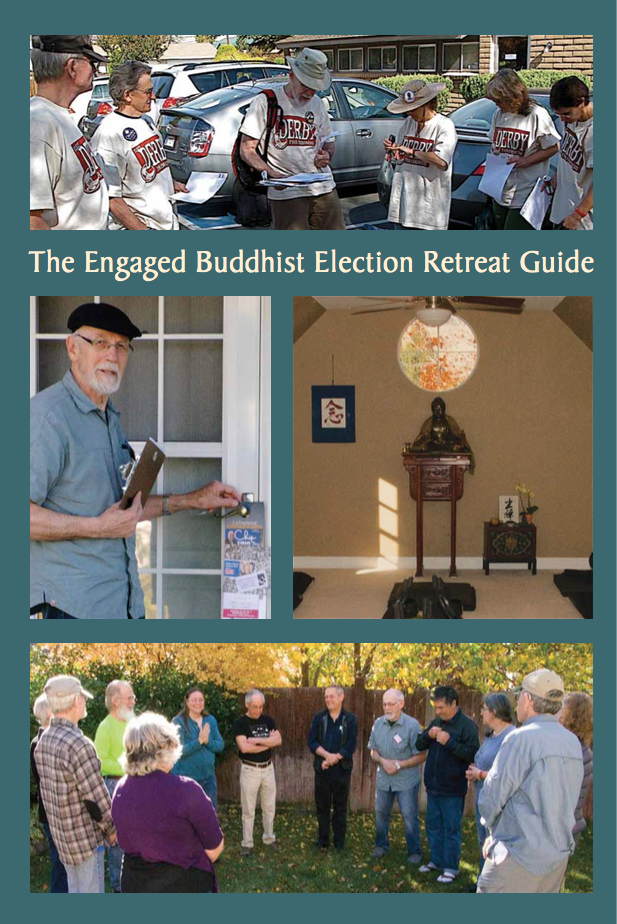
I believe our efforts have been part of an electoral victory. This is not a victory aimed at defeating individuals, but an effort to turn toward values that lift up all beings in a spirit of equality and justice, creating a civil space where difference is not played out according to power and privilege. Where there is room for distinct views and even conflict, but not for violence and bitterness.
But beyond our numerical achievements, we have created a new community of practitioners. Reaching beyond the San Francisco Bay Area for the first time, there is a large cohort of kalyana-mitras forged in our common electoral work—meditating, studying, writing, sharing our hopes and concerns. These are friends we can turn to in the years to come.
Yes, I still feel my breath tighten as I watch the panicked maneuvers of incumbent president Donald Trump clinging to the White House he lost decisively to president-elect Joe Biden. Our country has endured four shattering years of racial violence, environmental destruction, corporate rapacity, and the COVID-19 pandemic, which has reached new heights, with record infection rates in much of the US and more than 240,000 deaths. Many of us have lost friends and relatives whose deaths can reasonably attributed to governmental neglect. We all know people out of work and running out of money. In Buddhist circles I hear from Buddhist teachers who are losing their centers because they can’t pay the rent.
The flames of discord have been fanned by a president whose every word is a lie, and a national leadership mired in its own self-interest. Having watched the wheels of governance grind to a halt, I remember the words of Shakyamuni Buddha to representatives of the Vajjian federation:
As long as the Vajjis assemble in harmony, adjourn in harmony, and conduct the affairs of the Vajjis in harmony, only growth is to be expected for them, not decline. — AN 7:21
I yearn for a time when we might again assemble, conduct our affairs, and adjourn in harmony, instead of the mean-spiritedness and deadlock we have seen in the highest assemblies of government. The Buddha speaks of the harmony of sangha as a model for what we now call civil society. This is what Dr. King meant as “Beloved Community,” which “. . . will require a qualitative change in our souls as well as a quantitative change in our lives.”
I hope as a nation we are up for this hard work.
Hozan Alan Senauke
Berkeley, California
13 November 2020

Hozan Alan Senauke is a Soto Zen teacher in the lineage of Shunryu Suzuki Roshi and Sojun Weitsman Roshi. He is acting head priest of Berkeley Zen Center. Hozan is founding director of the Clear View Project, and serves on the Advisory Committee of the International Network of Engaged Buddhists. Hozan is a respected performer of American vernacular music and a widely-published author. Among his recent books are The Bodhisattva’s Embrace, and Heirs to Ambedkar. Contact: [email protected]
See more


